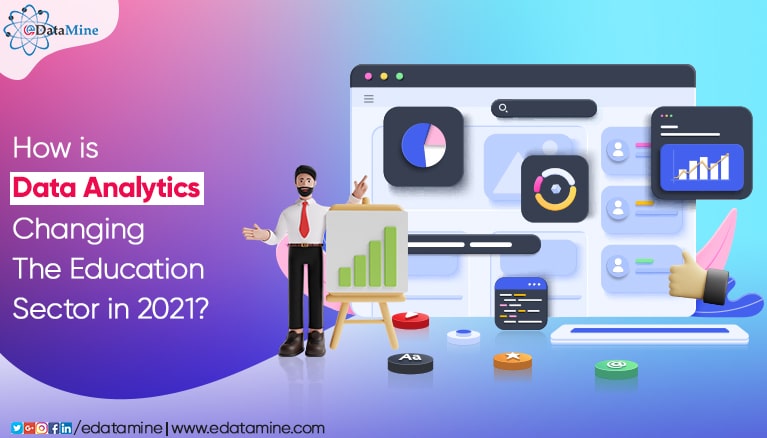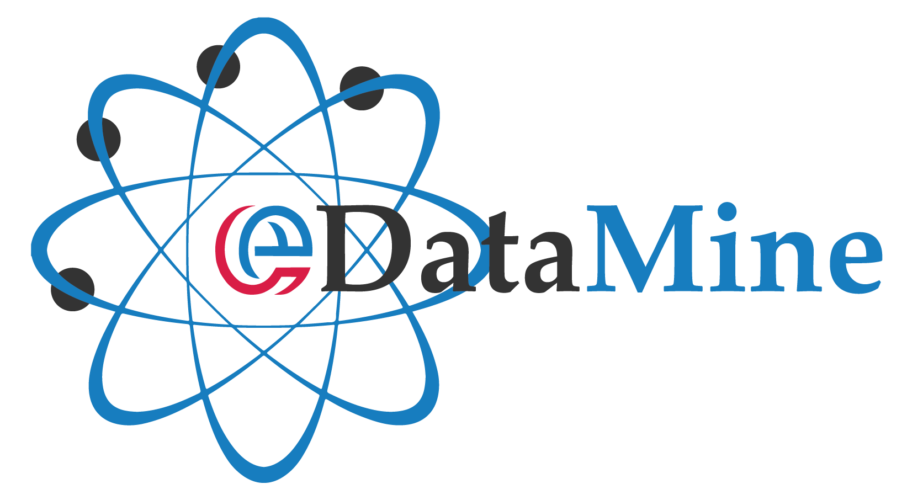How is Data Analytics Changing the Education Sector in 2021?

When we think about data, the first impression that comes to our mind is various industries or governments attempting to handle large-scale data analytics & management issues. In any organisation, there comes a time when critical concerns can only be satisfactorily explained if the company has massive data volume to rely upon. It hence proved that the education sector is the area rich with data to conduct analytics.
How Data Analytics Changes Education?
Data analytics can be a boon for the education sector. Information concerning students, faculties, educational courses & programmes can lead to new insights that can change the way educational institutions (schools, colleges, universities) function. In simple words, if applied correctly, data analytics can transform the field. Data such as test results and assignments can be analysed to evaluate a student’s performance. The outcomes can lead to the growth of personalized education goals & programs. Educational methods can be improved & students can be grouped based on learning patterns and difficulties, and consequently, required resources can be provided. Analytics helps to get an understanding as to how to ensure the individual progress of each student. Globally, a considerable amount of people receives a formal education (from nursery schools to post-graduation programs) each year. So, there’s a lot of data about people across diverse cultures that have the potential to contribute a lot if analysed well. The right analytics can help determine a student’s future. Students can better identify possible future roles and sectors that match their skills and inclinations. Let’s discuss at how it changes the education sector.
It Helps to Adapt to Ever-Changing Scenarios
Data analytics helps you develop innovative classes, teaching strategies and other methods to provide pupils with what they want. For example- community colleges are always filled with adults who are balancing work, families and their education so they prefer the school that offers flexible schedules. Due to Covid-19, there’s a significant surge in online learning. So for grown-up students, online classes can be more convenient than late-night or weekend classes. Plus, data analytics shows the exact number of classes that can be taken on-campus and the ones that can be taken online. For example- online chemistry/Biology classes may experience better enrolment and at the same time, on-campus English courses see a decline. At this time, educational institutions can improve & offer the best options possible.
Better Learning Process
Analytics can help build unique, customized syllabuses for students. Teachers/professors can make necessary changes with the teaching methods, reading materials and can help students to cope with problems and issues they might be facing. As students can access more papers (essays, term papers, dissertations) in the format they need, the process of acquiring, sharing, and exchanging knowledge get improved across institutes. With the availability and quick access to digital study materials, professors and supervisors can better promote communication.
Prevent Dropouts & Improvement in Grades
Analysing students’ performances by the grades they obtain in exams, projects and assignments is a common method in any educational system. If we observe closely, the grades, obtained throughout educational career, leaves a unique data trail. Analysing them will help tutors to understand the behaviour and performance of students. The feedback, drawn from the analytics can significantly impact the overall performance & students get to know where they fall behind & where they have topped.
Customized Programs (online & offline)
Based on the analytics of the grades and students’ attention span, educationalists can come up with customized programs. Students can benefit from a blended teaching method that combines both offline and online learning. The online teaching method allows the students to attend lectures and take up courses across the world. For instance, the Machine Learning class at Stanford taught by Andrew Ng was attended by nearly 400 students. However, when the same class was given online, more than 100,000 students joined.
Modernization of Educational Assessment
Analytics provides impartial feedback on the structure and plan of the educational institutions and the programs it offers. It helps them to realise how effective the teaching methods are. Performance gaps of the students can be spotted at the initial stages and can be addressed accordingly. Complex courses and study materials can be measured against specific students. The course content and the student strengths can be analysed and based on that, one can determine the chances of failure of the student. Thanks to this, tailor-made programs can get built to ensure students gain the knowledge they want in a way they can understand.
If there’s one field that can benefit the most from analytics, then that’s the education sector. Because the field is rich with available data. Any educational establishment that turns toward analytics adopts a unique culture. It will take time to build an educational system that utilises data to enrich life for both teachers and students. With a set goal and resources, almost any educational institution can benefit from data analytics.
Being the leading data management services provider, eDataMine has been providing customised and cost-effective data entry, data processing & data conversion services to a global clientele with an emphasis on on-time delivery and complete accuracy. Save your time, money and energy by outsourcing with us. To know more about our services, kindly write to us at – info@edatamine.com
Related Blogs
- Data Entry Outsourcing Services to Compass Business Growth
- 5 Key Qualities that Make India the Best Offshore Outsourcing Destination
- 3 Most Vital Tasks to Outsource for Online Business Ventures
- How Data Management Can Improve the Business Performance
- How Does Outsourcing Image Processing Services Benefit Business?
